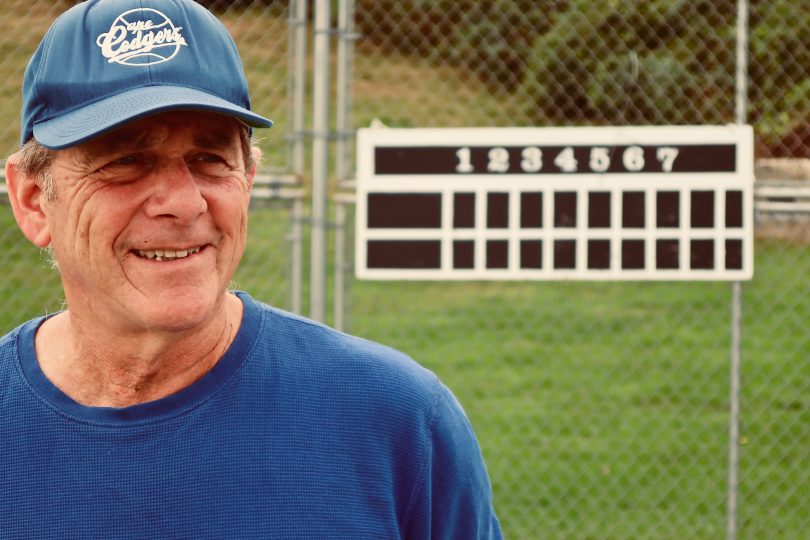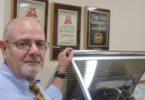FALMOUTH – The first time Barry Beder was brought in to work as a sports psychology consultant with the Boston Red Sox, “I was told, ‘You can’t tell anybody,’ And I was told, ‘Dress like a fan,’ whatever that means,” said Beder. It was so hush-hush that Beder – now 70 years old, retired and…
You may also like
Foggy Evening in Woods Hole – Slide Show
Sarah Burrill: “Rise Above” at the CC Women’s Music Festival – Music VIDEO
ArtsCape: Please Touch (the Art!) at Cotuit
Harvest Days: Remembering Michael Pearson’s Harvest Gallery Wine Bar
The Grab Brothers Make Hippie Happy Music – A Profile
Spontaneous Collaboration: Jackie Reeves and Lauren Wolk’s InkLine Project
Smoke Stack lightning: ‘Sinners’ sizzles – Play It Again, Tim
Spies play cat-and-mouse in ‘Black Bag’ – Play It Again, Tim
RIP Bruce Maclean – “the last old-time freak”
A suggested Hackman fest, an Oscar recap and a tardy review – Play It Again, Tim
Ho-hum, Oscar night at last–Play It Again, Tim
The “Functional Art” of Walter Baron, Boatbuilder – A Profile
‘Wolf Man’: Toxic masculinity strikes again – Play It Again, Tim
Singer a simian sensation in ‘Better Man’ – Play It Again, Tim
‘Bikeriders,’ ‘Beast’ best of the best for 2024 – Play It Again, Tim
Catching up during awards season; Play It Again, Tim
Follow The Money, and The Good Vibe; Why Shop Local – An Essay
Duo brings Y2K scare back to life in horror comedy
Making Things Happen; Attorney Bruce Bierhans – A Profile
Atlantic White Cedar Swamp Trail + Marconi Station Site – Slide Show
Sunset At The Knob – Slideshow
‘Here’ a forced tale of space and time–Play It Again, Tim
Bourne Farm, West Falmouth – Slide Show
Cardinals ask, ‘Who’s next?’ in ‘Conclave’–Play It Again, Tim
Cranberry Harvest In North Falmouth – Slide Show + VIDEO
3 Minutes Of Running Water Zen at Four Ponds Conservation Area – VIDEO
Scary stuff: crazed smiles, Art the Clown and the Donald – Play It Again, Tim
Shucking All Over, Wellfleet Oysterfest 2024 – VIDEO
‘Saturday Night’ is not all right; ‘Joker’ sequel takes risks; Play It Again, Tim
Canal Sunrise, With A Flash Of Lightning – VIDEO
About the author
Brian Tarcy
Brian Tarcy is co-founder of Cape Cod Wave. He is a longtime journalist who has written for the Boston Globe, Boston magazine, the Cape Cod Times and several other publications. He is the author of "YOU CAN'T SELL RIGHT FIELD; A Cape Cod Novel." He is also the author or co-author of more than a dozen mostly non-fiction books, including books with celebrity athletes Cam Neely, Tom Glavine and Joe Theisman. His previous book was, "ALMOST: 12 Electric Months Chasing A Silicon Valley Dream" with Hap Klopp,who created the iconic brand, The North Face.
For more information, see Briantarcy.com
Brian is a long-suffering Cleveland Browns fan with a long-running NFL predictions/political satire column connecting weekly world events to the fate of his favorite team, now at Whatsgonnahappen.com.































